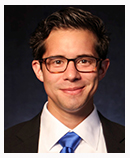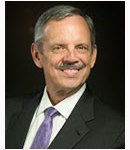Wednesdays have become known as our Millennial Round Table Shows and this week, Kerby is joined by the Denison Forum’s, Dr Nick Pitts and Rev. Ryan Waller, assistant rector at Church of the Incarnation in Dallas. They will discuss politics, stories in the news this week and give you their biblical perspective.

He came to the Denison Forum in 2014. He contributes to the Forum in the areas of geopolitics and popular culture, as well as serving as the editor of the Daily Briefing. He continues work on his doctorate and serves as an adjunct professor at DBU, teaching a master’s level course in the philosophy of leadership.
His Ph.D. research centers upon John F. Kennedy’s engagement of the religious community in the 1960 presidential campaign. He presented a paper on the topic at Calvin College’s 2015 symposium on religion and public life.
He is an editor at large for The Liberty Project, an online magazine, and his op-eds have been published by The Philadelphia Inquirer, Religion News Service and Townhall.com.
He received a bachelor’s degree in 2007 from Austin Peay State University in Clarksville, Tennessee, and a master’s degree in 2009 from Southwestern Baptist Theological Seminary in Fort Worth, Texas.

After a brief career in the law Ryan felt called by God to teach and preach. He spent three years at All Saints’ Episcopal School before being led to the Church of the Incarnation.
He is married to Caroline Waller and has two sons, Ford Casey and Charles Henry. Ryan is passionate about sharing the Good News of Jesus Christ through imaginative preaching and is honored to serve as the pastoral leader of the Uptown Services.
But a new study—Making Space for Millennials, a joint project of Barna and the Cornerstone Knowledge Network—uncovers key findings that help reveal unique characteristics about the Millennial generation, plus practical ways churches can connect with and engage today’s young adults. Below, we offer five questions to ask yourself and your team as you pray and plan to reach this unique group:
1. Is our church real or relevant?
Millennials are looking for authenticity. Unfortunately, a lot of churches today are striving to win over young adults by being relevant. Consider what Leadership Journal Managing Editor Drew Dyck identifies as the potential point of connection:
“Millennials have a dim view of church. They are highly skeptical of religion. Yet they are still thirsty for transcendence. But when we portray God as a cosmic buddy, we lose them (they have enough friends). When we tell them that God will give them a better marriage and family, it’s white noise (they’re delaying marriage and kids or forgoing them altogether). When we tell them they’re special, we’re merely echoing what educators, coaches, and parents have told them their whole lives. But when we present a ravishing vision of a loving and holy God, it just might get their attention and capture their hearts as well” (from the blog post “Millennials Don’t Need a Hipper Pastor, They Need a Bigger God”).

Just Google it. Find them on Facebook. Ask Siri. YouTube it. These phrases failed to exist twenty years ago, but today the services these products offer are almost indispensable. How did you find out information before Google? How did you keep up with friends—and friendly creep enemies—before Facebook? How did you function without Siri? And how could you tie a tie without YouTube?
These companies not only provide services but have created a significant number of jobs. Apple employs 66,000 people in the US alone. Google employs 54,000. 17,000 with Facebook. Technology is increasingly becoming more a part of the human experience, but what are the effects? They are a convenience, but are there detriments?

So I’ve been thinking and researching and writing on happiness for a while now. And I think I’ve come up with something significant. I call it The Jesus Secret (TJS). It’s a project that can be described like this: a Christian personal evaluation and refocus project that uses principles found in Scripture and psychotherapy to guide readers toward a happier life.
My hope is that TJS becomes a book with an entry for every day of the year. Then when the year is over I’d like to publish a new edition for the new year. And then I’d like to keep doing this—forever. Because the journey toward happiness is a never ending one. Because happiness is a choice that must be made every day. And I don’t know about you but I need help making it—every single day.
 Listen Online
Listen Online Watch Online
Watch Online Find a Station in Your Area
Find a Station in Your Area


 Watch Now
Watch Now Listen Now
Listen Now 







 Listen Now
Listen Now Watch Online
Watch Online
